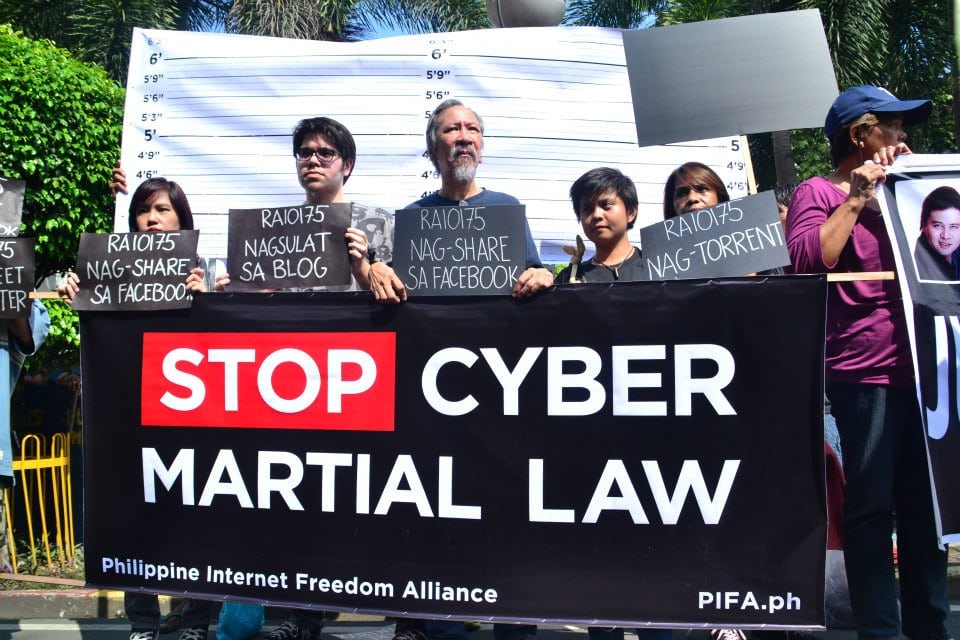In response to various petitions questioning the constitutionality of provisions of the Cybercrime Prevention Act, the Supreme Court of the Philippines restrained government agencies and officials from implementing the Act for 120 days.
UPDATE: Supreme Court discourse on Cybercrime Law (CMFR, 17 January 2013)
(CMFR/IFEX) – The Supreme Court of the Philippines restrained government agencies and officials from implementing Republic Act no. 10175 or the Cybercrime Prevention Act of 2012 within 120 days starting 9 October 2012.
In a resolution dated 9 October 2012, the Supreme Court en banc “without giving due course to the petitions” issued a Temporary Restraining Order as requested by 15 groups of petitioners questioning the constitutionality of provisions of the Cybercrime Prevention Act. (The Center for Media Freedom & Responsibility [CMFR] is one of the petitioners in G.R. no. 203453 [NUJP, PPI, CMFR et al. vs Executive Secretary et al.].)
The Court in the same resolution ordered respondents and the Office of the Solicitor General to “comment . . . within ten (10) days from notice hereof.” Oral arguments will be on 15 January 2013 at 2 p.m. (Manila time).
The Cybercrime Prevention Act took effect on 3 October 2012, 21 days after it was signed into law by President Benigno Simeon Aquino III last 12 September 2012. The law penalizes crimes committed through computers and online including libel.



